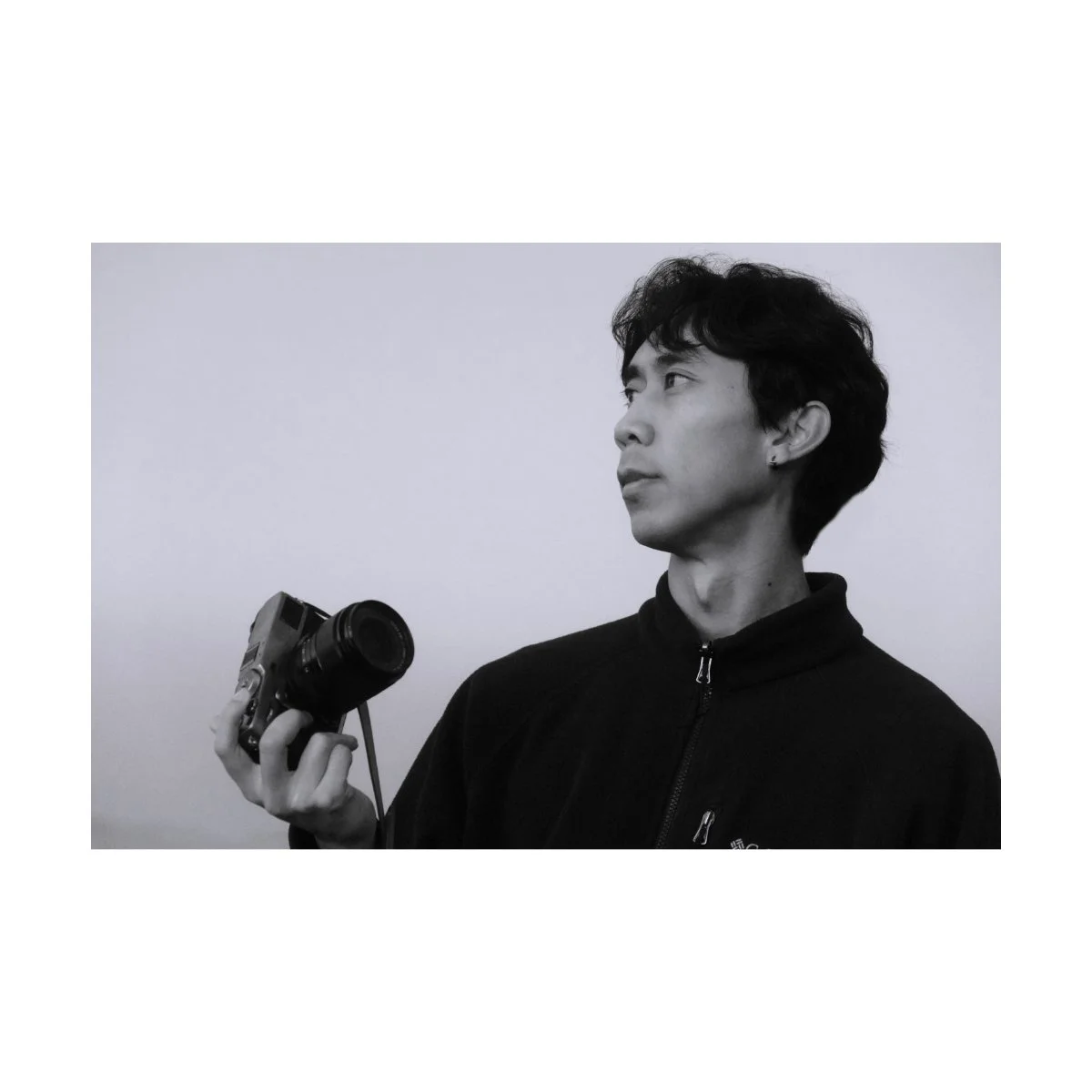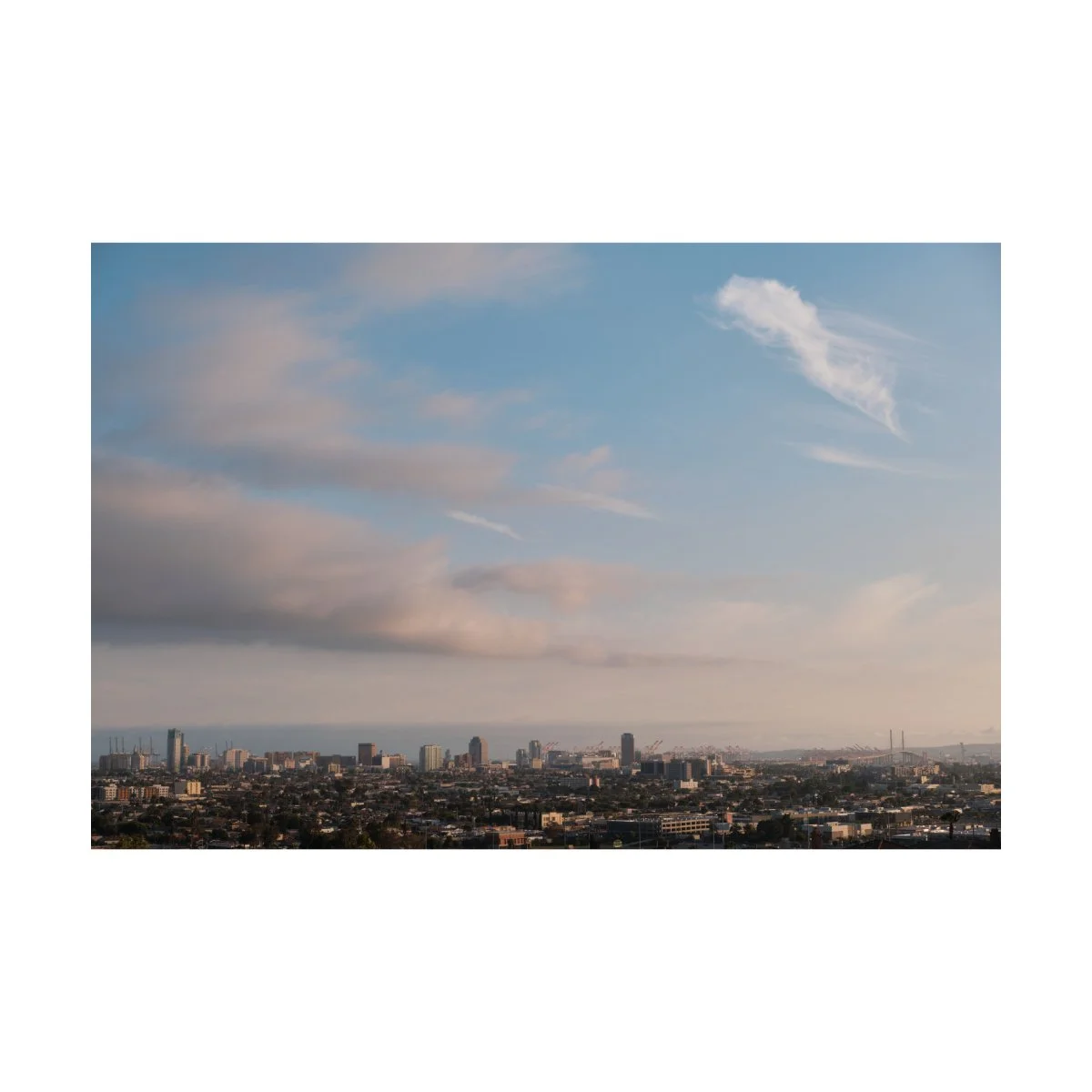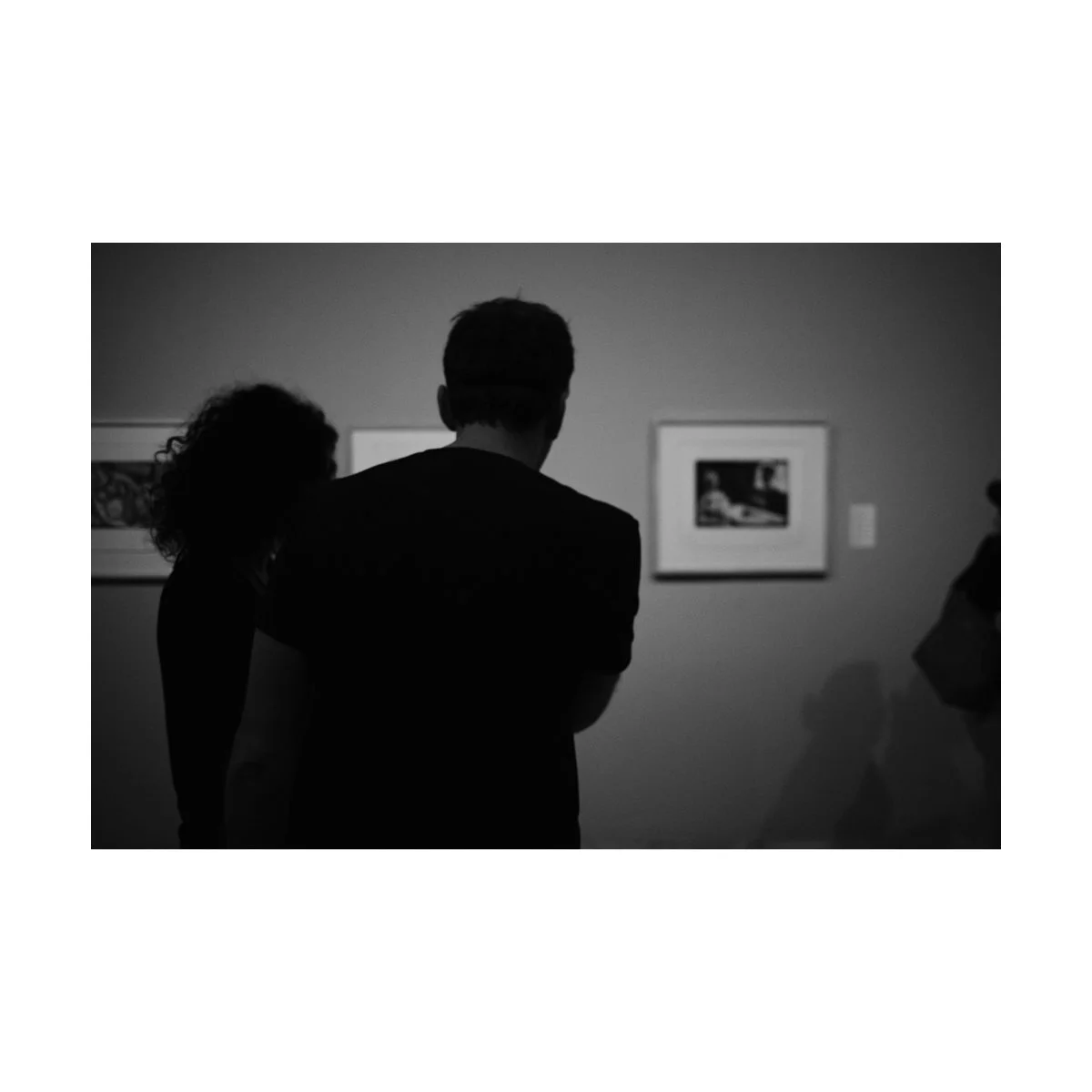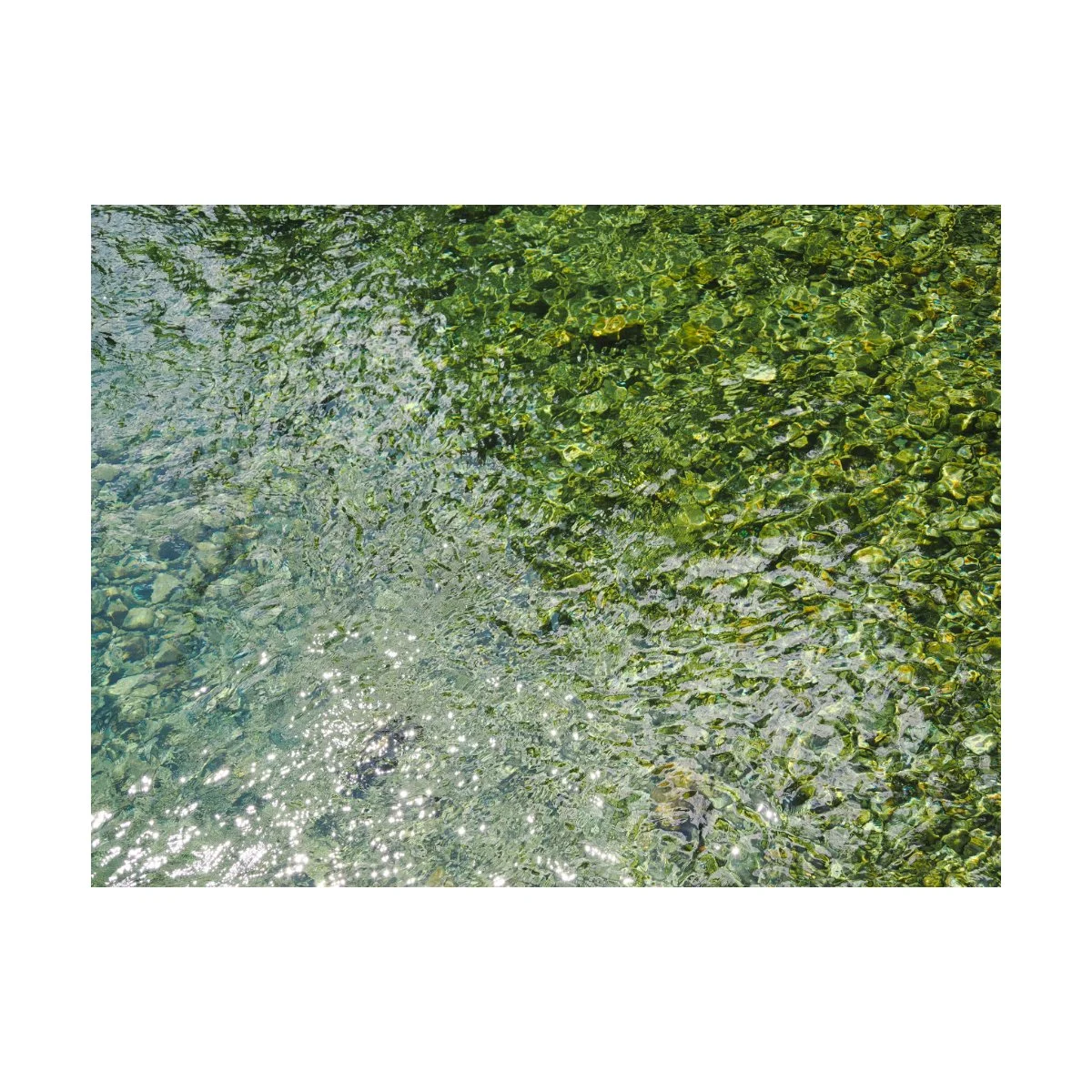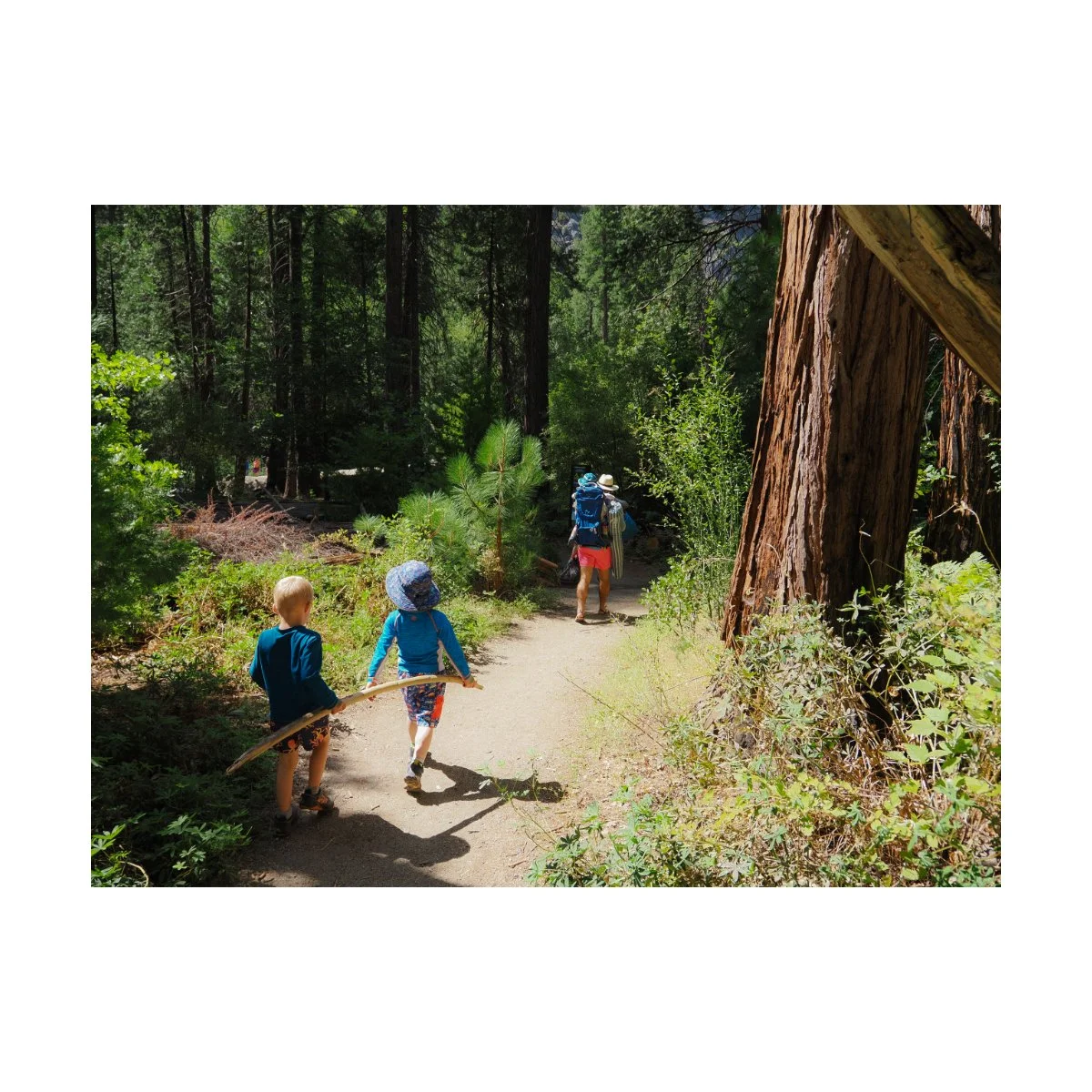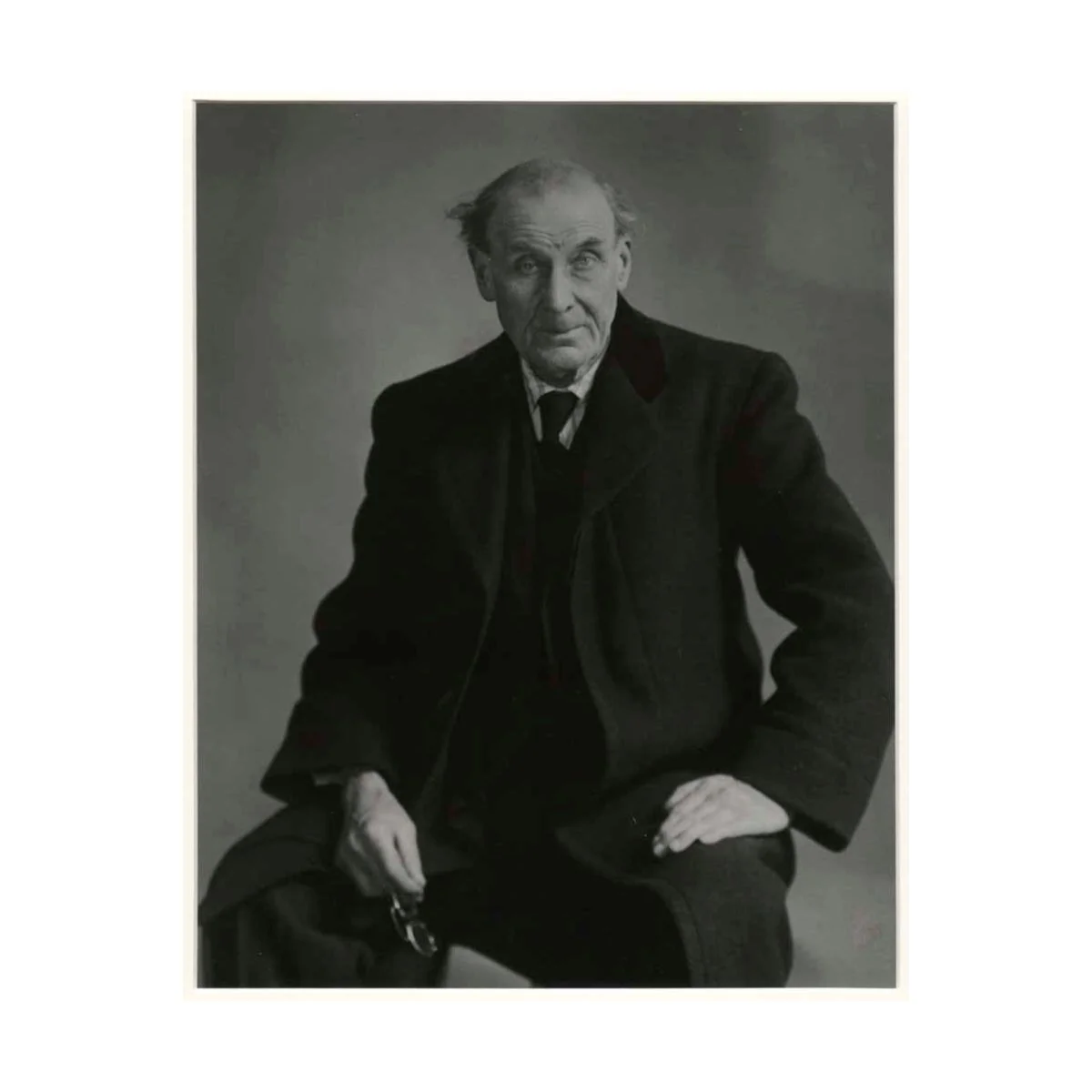7 Self-Limiting Beliefs That Are Ruining Your Photography
People are their own worst enemies.
It’s not other people judging them.
It’s not their own skill level or lack of talent.
And it’s certainly not the circumstances they grew up in or the things they didn’t have.
Because there’s living proof all around of successful people who’ve had less and did more.
No, rather it’s the mentality, the perspective, the things we tell ourselves that play a much bigger impact on our photography and life than we realize.
Over time I’ve learned that if I just didn’t think in certain ways, didn’t worry about certain things, and was less hard on myself in certain areas, I’d have less struggles, the path forward would be clearer, and I’d have gotten better, faster.
This goes for both photography and life.
It’s the many self-limiting beliefs about ourselves and the world around us that are holding us back - and we need to break them.
I’m going to share a few common ones I think many people have and some more positive ways to think instead.
And if you’re interested in the whole process of improving your photography, I have something new for that coming soon - look forward to it.
Let’s begin.
“Real photographers have degrees.”
I don’t have a degree in photography.
I never went to school for photography, I never studied photography formally.
Everything I know now I learned online, from others, and through real world experiences.
And to be honest, I’ve gotten along just fine.
I’ve sold prints and books of my work - something I never could have imagined doing before.
I’ve made countless videos sharing tips around photography that I think many have found helpful.
And I’ve freelanced - did some gigs and shot for others.
I’m not the best photographer by any means (I also don’t care to be), and yet I’ve done more with photography than I think many photographers with degrees have.
Now this isn’t to diminish the success of people with degrees; I’m sure there are many who’ve found value in that education.
But from my perspective, I’ve always thought: for a field like this, what can school teach me that I can’t learn on my own?
If you study the great photographers and artists of the past, many of them didn’t go to school.
Rather, they learned in 3 common ways:
repetition/obsession with the craft
mentorship or apprenticeship (1 to 1 learning)
tinkering/experimentation
These things are non-exclusive to the education system.
Meaning you don’t need to go to school to take photos everyday, learn from a mentor, or tinker until you figure out what works.
Ironically, schools were built to teach people things that were learned outside of school, not the other way around.
So although a degree can verify you in some way, I believe art is a permissionless field - meaning it doesn’t matter how you learn as long as you learn.
Keep improving and eventually your skills will do the talking.
Now overall, this is a non-problem for most of us.
Many of us are hobbyists and just do this for fun, so we don’t care about photography that deeply.
But if you are stuck with that kind of emotion, here’s how to get over it:
Get really good at what you do, that way your skill speaks louder than accreditation.
Remind yourself that most of the greats didn’t have or need photography degrees. (because art is a field of exploration and innovation anyways and schools were built to teach things people learned in the field)
Remember that at the end of the day, a degree is a piece of paper and you can still take crappy photos regardless. (so the work speaks more than the degree; focus on improving your photography in whatever way you prefer and you’ll be fine)
“That’s easy for you to say.”
This might be the most common self-limiting belief I’ve seen online.
People will comment in videos, forums, and blog posts:
“That’s easy for you to say.”
Or maybe:
“Easier said than done.”
Or even:
“Must be nice.”
There are many other similar phrases but they all share the same meaning:
It’s someone trying to avoid responsibility for their problems, whether it be something small like improving their photography or completely reinventing their lives.
People know what they have to do, in a general sense, but they don’t want to do it.
They want to sit around, mope, and feel bad about their situation.
The reason they came to those videos was not for help, but rather to moan and complain about how hard and difficult it is.
And they’ll leave a comment to get sympathy likes from others who feel similarly.
But the next day comes and nothing ever changes.
Your photography doesn’t improve, you don’t take the trips you said you wanted to, and your projects remain unfulfilled.
Now, if you’ve said these phrases before, I’m not going to judge you.
Because I’ve said them before a long time ago and it makes perfect sense why you would.
But the sooner you can stop saying it, the better, because it’s just not helping.
In these cases, I remind myself of a great quote by Naval Ravikant.
It went something along the lines of:
“Would you rather be right or would you rather be happy?”
You see, if someone says “easier said than done”, they’re not wrong.
A lot of things are easier said than done.
And many things like improving your photography, improving your health, improving your life, have simple and straightforward paths.
But they’re not always easy - or else we’d have done them already.
So that phrase isn’t necessarily incorrect - it just doesn’t work.
Because if you keep saying these phrases, you’ll be right, but your crappy circumstances won’t change for the better.
So the fact of the matter is: it doesn’t matter if it’s easy or not.
“That’s easy for you to say” is just a phrase people use when they don’t want to admit that someone else did all the hard stuff they couldn’t.
And they want to attribute that success to something supernatural - talent, circumstances, and unfair advantages that “I” don’t have and therefore I can’t achieve the same things.
Rather than realizing: it wasn’t any of those to begin with.
The biggest difference was that that person did what needed to be done, and you did not.
Even myself, I’ve had to create hundreds and hundreds of videos to grow this channel to even a fraction of what other creators have done.
I had to go out on countless photo sessions trying to get more comfortable and improve my photography.
And I had to save up the money and remain focused, to take the trips and have the experiences I said I wanted to.
None of that would have been possible if I looked at others and said, “must be nice for them”.
Flipping this switch is scary because:
now you’ll have to do the work
you’ve wasted a lot of time already, so you want to double down
it means you’re at fault
And that’s hard because who wants to own up to our mistakes, right?
But at the end of the day, it’s either making those necessary changes to grow and improve or staying in the same mediocre place you’ve been in.
But again, that’s easy for me to say, right?
“It’s too late.”
For some reason, people of all ages, both young and old, love this phrase.
Every now and then you’ll hear an older retired adult say it - which kind of makes sense because they probably have regrets.
But you’ll even hear kids and teenagers say it.
“It’s too late”.
The earlier you can stop saying this, the better.
I remember back when I was I kid, I used to think I had to start young to be good in a sport.
And if I wasn’t already doing it at an early age, it was too late to get good, especially if I wanted to go pro.
That was a stupid thought to have, particularly because I was still a kid myself.
But as I grew older, more and more examples of late bloomers popped up:
Michael Jordan, was famously cut from his high school basketball team.
Charles Bukowski published his first novel, The Post Office when he was 50.
Even the top street photographer Cartier Bresson, changed gears and focused on painting in his later years.
What does this mean?
This means it’s never too late.
It’s never too late to start something new, to restart something you’ve abandoned long ago, and to do something you’ve said you’ve always wanted to.
Maybe certain limitations will exist, sure.
Like you wont go pro if you start a sport in your 40s.
But you can still play with your friends or other adult leagues and have a great time.
Photography especially, is great because there’s no real age range.
You can take pictures when you’re a kid and you can take pictures when you’re an adult.
And yet even photographers can feel as if it’s “too late”.
Too late to build that photobook, try and make it as an artist, publish to social media or a blog, go on that trip, whatever.
Don’t fall for this trap.
You don’t have to stick to these beliefs you’ve created about time and age long ago.
Ignore your self-defeatist pessimistic idiotic brain.
If there’s something you’ve always wanted to do, do it now, even if it feels “too late”.
They say the best time to start was yesterday and the second best time is today.
And who knows?
Maybe you’ll look back and say “I’m glad I did that”, rather than “I should have done that.”
“I’m not good enough.”
Inadequacy sucks.
It’s a feeling both beginners and pros alike have.
Being “good” or “good enough” is something people think they need to take proper action.
But the fact of the matter is, you’ll never feel good enough.
Even the pros and experts of any sport or discipline don’t feel good enough.
And like us, they feel anxiety and get nervous too.
The difference is, they don’t let these feelings hold them back.
Ask yourself:
“Why does it matter if you’re good enough or not?”
Do you really need to be super good to go out and take photos, or pick up this client, post on Instagram, make this photobook, or even teach a friend what you know?
Probably not.
Then ask yourself:
“How are you even supposed to get good enough if you never do anything?”
Many photographers think they need to be “good enough” first.
When in reality, it’s the doing of those things that will take us to that next level.
These challenges that scare us, that we don’t think we’re ready for, are the actual stepping stones to improving.
And diving in headfirst, maybe failing, but learning and growing is the process.
So it’s not “I’m not good enough.”
It’s: “this will make me better”.
Don’t use your lack of skill or confidence as an excuse to shy away from the work.
Rather, use the work as a way to improve your so called “lack of skill”.
That way we can rephrase or reframe our self limiting beliefs into actions that will overcome those beliefs.
When I feel this kind of doubt rising in me, I tell myself:
Do it regardless.
It’s a bit of a trick to tip toe around your brain, but when done right, can be very effective.
In turn, we might realize we’re much more capable than we thought.
“No one will care about my work.”
Many artists struggle with this: believing their work is pointless or relying on the opinions of others.
It’s a silly endeavor, and we know it, but we do it anyways.
“No one will care about my work.”
You’re right - and so what?
Who cares if people care or don’t care?
Why does it matter for what you do or what you’re trying to express?
Eugene Atget, the French photographer, was largely unknown and undervalued for most of his life.
It wasn’t until after his death that he became more widely recognized outside the main circles and institutions.
But he didn’t get to see any of that.
Now we don’t know how he felt about success and recognition, but he remained committed to his purpose: documenting Parisian life and architecture in a fast upcoming modernization of the world.
And one can infer that if they keep the purpose and focus on the work itself (what you’re trying to photograph and express through your photos), then all that other stuff doesn’t matter.
This is a common struggle for many artists.
The balance between wanting to create something and wanting to be recognized for it.
Most artists remain unknown, undervalued, and eventually forgotten.
But one could also argue that if you’re making something to be famous you’re doing it for the wrong reasons.
Whenever I’m burdened with silly thoughts like these, I remind myself:
It’s not about you.
These photos you’re taking, the videos you make, whatever.
No one will care about your work?
That’s fine - because it’s not about you/me.
That’s not the point, remember?
And then I humble myself and get back to the grind.
"I need more/better gear."
A useful phrase that’s stuck with me over the years is:
“Use what you have, get what you need.”
This is something that’s kept me grounded when it comes to both photography and YouTube.
For things like photography, which is a gear heavy world, it’s easy to be distracted and convinced that we need this particular thing to make it work.
But the fact of the matter is, most of the times we don’t.
And if we just focused on trying to make it work with what we currently have, we’d quickly find out how much more we can actually do.
That’s creativity in a nutshell - problem solving in unique ways.
If you go back and look through many of my older videos, they’re pretty trash compared to the ones I’m putting out now.
I winged pretty much everything with no scripts, which kind of worked, but it made my thoughts less developed, less thought out, and less applicable for people.
I also had a pretty poor understanding of lighting and audio so the videos didn’t always look or sounded the best.
And yet I posted dozens, hundreds of videos regardless.
Some of them did poorly, some actually did really well, but that wasn’t the point.
The point was that I used what I had to make stuff, and anything I realized I needed, I got later.
And slowly over time, things improved and got me to where I am now.
Not perfect by any means, but not bad, and still getting better.
The same goes for photography.
Whatever you got, use it - you don’t need good gear to get better.
If you find out you need something later, save up and pick it up.
But otherwise don’t let your lack of an optimal setup prevent you from taking photos.
Rather, if you just focus on the actions of bettering yourself, better photos will come naturally as a positive consequence.
“There’s so many better photographers.”
A lot of self limiting beliefs are a product of hubris, or over self importance.
It’s a stretch to call it “narcissism”, but at the end of the day it does in part come from ego.
If you weren’t thinking about yourself so much, you might not have these thoughts.
“There’s so many better photographers out there.”
True.
You’re right.
The same goes for me.
I am but another piece of dust drifting in the wind amongst a mine of diamonds and gold.
And I don’t give a f*ck.
I’ve stopped caring years ago about there being better photographers or even “being the best”.
Because I realized: that’s a futile endeavor.
There will always be someone better, and even if you climb the ranks and become “the best” in many’s eyes, there will always be someone who doesn’t think so.
So I figured: if that’s the case, then the whole game itself is silly.
Because there’s no way to win no matter what you do.
When I realized that, I reoriented myself and spent more time doing the work itself.
Because at the end of the day, that’s all that mattered to me.
Did I get the job done?
Did I do what I set out to do?
If I can do that, the rest will take care of itself.
If you’re struggling with comparing yourself to others, you gotta learn to stop thinking about yourself.
The problem comes, in part, because you’re so focused on who you are and how you’re doing, that who someone else is and how they’re doing negatively affects you.
But like I said, if your focus was the work itself, then you’d care less about yourself and more about the work.
Whether the shot is right, whether the layout is right, whether the print quality is good.
And by nature you will stop caring about there being better photographers out there, because you’ll know it’s not about that.
It’s about the things you’re trying to capture, express, and bring out into the world.
Make sense?
If that doesn’t work, another common reframe is to compare yourself to yourself.
Instead of comparing yourself to others, learn to compare yourself to the person or photographer you were yesterday.
Are you getting better, are you improving?
If yes, then great.
If not, then you know what you need to do.
I personally don’t prefer this one as much, because it’s still thinking about myself too much rather than what I’m trying to make, but it has worked in the past.
“I’m not good at that.”
People like stuff they’re good at and dislike stuff they suck at - that’s the truth.
But when it comes to the real world, we unfortunately have to be good or at least decent at a lot of different things.
Society wants us to specialize whilst knowing that life is multivariate and you have to be well rounded.
Managing your finances, being a good partner, going to the gym, doing art.
Even in the smaller niche of photography, there’s taking the photos, editing the photos, creating and structuring the book, selling your work, and marketing the stuff you wanna sell.
It’s not just art - there’s a technical, design, business, etc aspect to it.
And if you don’t have the money to outsource these things, which most of us don’t, you have to learn to do it yourself.
The sooner you can let go of sayings like “I’m not good at that part”, the sooner you can take the steps to learning those skills.
It doesn’t mean you have to be the best at that thing.
And it also doesn’t mean spending so much time in different skills that you find yourself spread thin.
But just a simple basic foundational understanding of these many different aspects that are part of the process can go a really long way.
The key here is to be confident is your capacity or ability to learn.
How do we do that?
By realizing that learning anything is like learning one thing.
There was a process, a method you used, particular to your brain, that helped you learn photography.
Maybe you were just obsessed with it and spent a lot of time doing it.
Maybe you watched a bunch of tutorials and guides on how to get better.
Maybe you learned in the real world by making a bunch of mistakes.
Maybe you learned from teaching others.
Each of these methods of learning can work - but you have a preference to one or a few of them.
If you figure out how you like to learn, you can learn anything.
You never start out good at something - but as you learn, you’ll get better.
And when you get better at something, you’ll like it more.
So if there’s a skill or program or technique that will help you get to where you want to go, it’s in your best interest to try, even if you’re not good at it.
It’s often we shy away from the stuff we suck at because it’s uncomfortable and it makes us feel bad.
But the sooner we can get over the initial bad hump, the sooner we can get better and it will actually play out for us.
Some examples of what this might look like in photography:
You might be a JPEG only shooter, but a few basic skills in photo editing could give you that insight to make the right SOOC adjustments.
You may only shoot digital, but at least knowing how to shoot film can teach you better and more efficient ways of exposing your photos.
You may not want to sell your prints, but printing a few photos here and there can reveal mistakes in your photography that you didn’t notice on the computer screen.
And you may be an artist, not a business man, but learning a few sales skills here and there could help you get more clients whether it be photoshoots or selling your work - which can get more of your art out there.
So stop saying “I’m not good at that.”
Because even though it might be true, it doesn’t help you.
And even though you’re not good at it, you can still learn.
You don’t have to be the best in these secondary or tertiary skills - and it doesn’t have to be your main focus.
But just a little small understanding of the basics can go a long long way.
So that was 7 self limiting beliefs that are ruining your photography, with a bonus.
If you found this helpful, share this with a friend who could also use this.
If you want to learn all about improving your photography, get ready for my new course Photography Systems.
You can also access Photography Essentials in the meantime if you haven’t yet - that one’s free.
We’ve also got new prints and limited edition shirts available.
Thanks for reading, happy shooting.
